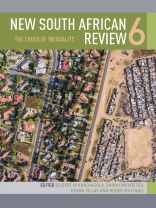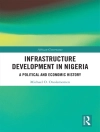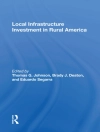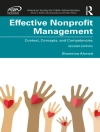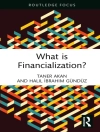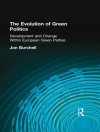Despite the transition from apartheid to democracy, South Africa is the most unequal country in the world. Its extremes of wealth and poverty undermine intensifying struggles for a better life for all. The wide-ranging essays in this sixth volume of the New South African Review demonstrate how the consequences of inequality extend throughout society and the political economy, crippling the quest for social justice, polarising the politics, skewing economic outcomes and bringing devastating environmental consequences in their wake. Contributors survey the extent and consequences of inequality across fields as diverse as education, disability, agrarian reform, nuclear geography and small towns, and tackle some of the most difficult social, political and economic issues. How has the quest for greater equality affected progressive political discourse? How has inequality reproduced itself, despite best intentions in social policy, to the detriment of the poor and the historically disadvantaged? How have shifts in mining and the financialisation of the economy reshaped the contours of inequality? How does inequality reach into the daily social life of South Africans, and shape the way in which they interact? How does the extent and shape of inequality in South Africa compare with that of other major countries of the global South which themselves are notorious for their extremes of wealth and poverty? South African extremes of inequality reflect increasing inequality globally, and The Crisis of Inequality will speak to all those – general readers, policy makers, researchers and students – who are demanding a more equal world.
Inhoudsopgave
IINTRODUCTION
The global crisis of inequality and its South African manifestations Devan Pillay
PART ONE: INEQUALITY AND CLASS: POLARITIES AND POLICIES
CHAPTER 1 Inequality in South Africa Neva Makgetla
CHAPTER 2 A national minimum wage in South Africa: A tool to reduce inequality? – Jana Mudronova and Gilad Isaacs
CHAPTER 3 The politics of poverty and inequality in South Africa: Connectivity, abjections and the problem of measurement – Sarah Bracking
CHAPTER 4 The financialisation of the poor and the reproduction of inequality – David Neves
PART TWO: THE POLITICS OF INEQUALITY
CHAPTER 5 Liberal democracy, inequality and the imperatives of alternative politics: Nigeria and South Africa – Samuel Oloruntoba
CHAPTER 6 Liberalism and anti-liberalism in South Africa. Or, is an egalitarian liberalism possible? – Daryl Glaser
CHAPTER 7 Equality and inequality in South Africa. What do we actually want? And how do we get it? – Roger Southall
PART THREE: SOCIAL DIMENSIONS OF INEQUALITY
CHAPTER 8 Analysis must rise: A political economy of falling fees – Stephanie Allais
CHAPTER 9 Education, the state and class inequality: The case for free higher education in South Africa – Enver Motala, Salim Vally and Rasigan Maharajh
CHAPTER 10 Still waiting: The South African government’s pending promise of equality for people with disabilities – Jacqui Ala and David Black
CHAPTER 11 Big fish in small ponds: Changing stratification and inequalities in small towns in the Karoo region, South Africa – Doreen Atkinson
PART FOUR: LAND AND ENVIRONMENT
CHAPTER 12 Spatial defragmentation in rural South Africa: A prognosis of agrarian reforms – Samuel Kariuki
CHAPTER 13 Mining, rural struggles and inequality on the platinum belt, South Africa – Sonwabile Mnwana
CHAPTER 14 Challenging environmental injustice and inequality in contemporary South Africa – Jacklyn Cock
CHAPTER 15 The geography of nuclear power, class and inequality in South Africa – Jo-Ansie van Wyk
Over de auteur
Jo-Ansie van Wyk is a professor in International Politics at the University of South Africa, Pretoria
